Toolbar
Want to friend Adrian Rafael Lantsov? You need to log in or join our community, first! It's fast, free and easy.
Want to tell the world what you love about Adrian Rafael Lantsov? You need to log in or join our community, first! It's fast, free and easy.
Adrian Rafael Lantsov
The Tracker
-
"You are the compass in the storm, the guide
in the dark. You will always find your way."
– Hafsah Faiza




A D R I A N
Адриан | "Man of Adria" | Masculine
R A F A E L
Рафаэль | "God has healed" | Masculine
L A N T S O V
Ланцов | "Protector of mankind" | Masculine/Feminine
-
BASICS
⎨NAME⎬
Adrian Rafael Lantsov. A name carried with both pride and irony, for though it ties him to Ravka's soil, he has long walked outside its laws.
⎨ALIAS(ES)⎬
He is no man of masks and seldom answers to anything but his given name. Still, among strangers and comrades alike, Lantsov serves well enough.
⎨AGE⎬
Twenty-three years of age.
Born beneath the winter sky on December 19th, with all the fire and restlessness that mark a Sagittarius.
⎨NATIONALITY⎬
Though Ravka raised him, his sun-warmed skin and black hair tell of Suli heritage. He is a man caught between worlds, and he wears both legacies with equal defiance.
⎨RESIDENCE⎬
He calls no place home. Adrian lives where the road takes him – be it a forest camp, a roadside inn, or a stolen night beneath the stars. Wherever coin or cause finds him, there he lingers – though never for long.
⎨OCCUPATION⎬
Tracker is the truest of his titles, yet hardly the only one. Gambler, outlaw, rogue, and scoundrel have all clung to him in turn, and he accepts each with a crooked grin.
⎨BUILD⎬
Tall, lean, and honed by hardship, he carries himself with the fluid strength of one who moves through the world as predator more than prey. His body is a map of endurance, trained for both pursuit and battle.
⎨COMPLEXION⎬
The golden hue of his Suli blood deepens richly in the sun, a constant reminder of the mother who gave him life and the sister he failed to save.
⎨HEIGHT⎬
He stands at 187 centimeters, his presence commanding even when he chooses to feign ease.
⎨EYES⎬
Dark as night at first glance, yet upon closer look lit by glints of molten gold – like ore veins running through stone. His gaze is mischievous and warm by turns, framed by thick lashes and bold brows.
⎨HAIR⎬
et black and shoulder-length, his thick locks fall loose unless bound for battle. It has often been said his hair toss carries as much flourish as his blade.
⎨TRADEMARKS⎬
Scars line his body like runes carved by survival. Each one is a record of mistakes, victories, and defiance. He wears them not with shame, but as emblems of his resilience.
⎨QUIRKS⎬
He plants the seeds of every stonefruit he eats, scattering the earth with the promise of apricot groves. It is a Suli custom, and to him a private prayer for the family he lost.
⎨SEXUALITY⎬
Heterosexual, though his roguish charm is often indiscriminate, thrown like sparks to amuse himself as much as others.
⎨STRENGTHS⎬
A tracker of rare instinct, he can follow trail and sign as if the land itself speaks to him. Resilient, quick to recover from defeat, confident to the point of recklessness. Good-humoured even when bloodied, and entirely untroubled by reputation or propriety.
⎨WEAKNESSES⎬
Haunted by the family fate stole from him. Reckless in the face of danger, unable to ignore a challenge even when wisdom urges otherwise. Masks grief and pain with jest, never confronting the wounds that fester beneath his charm.
⎨LIKES⎬
Freedom above all else, the road and its uncertainties, the wild solace of the outdoors. He delights in philosophy shared over firelight, in the hiss of arrows loosed from the string, and in the thrill of triumph when odds are stacked against him.
⎨DISLIKES⎬
Stagnation, confinement, and the kind of small-mindedness that judges a man by heritage rather than deed. He has little patience for pedantry or for those who turn a blind eye to injustice.



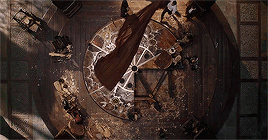
-
BACKGROUND
"In the bright, early morning sun, with blue-black hair swept back from his face,
his usually rugged features were younger, softer, and somehow all the more beautiful."
– Jennifer L. Armentrout




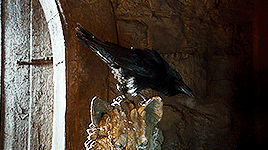

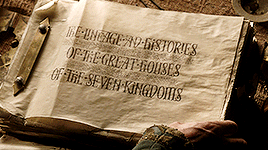

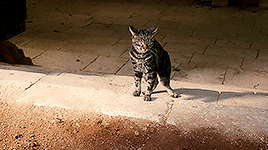

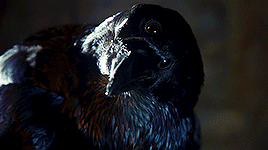


O T K A Z A T ' S Y A
SUB HEADLINE

Adrian Rafael Lantsov was born north of Petrazoi in East Ravka to parents Aleksandr Lantsov and his partner Marina Denali. While their lack of official marriage status might have deemed Adrian a bastard in the eyes of many Ravkans, the Suli tradition of caring deeply for a partner without the need for marriage was more than enough to keep them all content. As was the case with many Suli-descendants, the Lantson-Denali family was a humble, but loving one: Always having to ration the food and mend what was broken instead of buying anew – but it never turned them bitter. In fact, their lack of physical possessions enriched their existence with presence, selflessness, and love for one another. They made do with what little food they were able to find or grow themselves, and the same went for tools, clothing and transportation, which in turn made them all creative and excellent problem solvers. They hardly ever wanted for anything, and the occasional sting of hunger was dulled by a merry song, a ride through the mountains or a dramatic rendering of a folktale by the fireside. His earliest memories were painted in warm strokes of sunlight and laughter. His father's rough hands lifting him to ride upon strong shoulders, his mother's voice wove Suli songs into the mountain air, and in those moments, even hunger could not gnaw away at their happiness.
But the world is merciless with those who have little. Aleksandr was a hunter as much by necessity as by skill, venturing far into the forests above Petrazoi to trap and trade, often gone for days. One winter, when Adrian was but three, Aleksandr never returned. They found his body weeks later, frozen beneath a drift, a broken branch skewering his side – A fall in the mountains, or perhaps wolves had finished what the cliff began. Marina did not weep before her son; her grief was swallowed down with silence and prayer. Yet from that day, Adrian's memory of her smile dimmed, and her voice grew quieter.
It was no surprise when she remarried months later. A man could offer safety where love had failed, and Konstantin Angeloff – stern, broad of shoulder, with ambitions in Petrazoi's markets – seemed to her the practical choice. For a time, Adrian tried to love him as a father. But Konstantin's affection was measured, like coin dealt in sparse amounts. When Marina died giving birth to their daughter Stelmaria, what little warmth remained within him was smothered beneath bitterness. Stelmaria was the very mirror of Marina – her black hair, her expressive Suli eyes, her defiant, challenging gaze – and for that Konstantin despised her. He tolerated the child as one might endure a wound that never quite healed, lashing out in cruel words and cold neglect. Adrian, only a boy still, became her shield. He read her stories by firelight, braided her hair clumsily, taught her the folk dances their mother had sung into memory. In Stelmaria, Adrian saw Marina's spirit reborn, and he swore to protect her, though he had nothing to his name but a will of iron.
Years passed. Stelmaria grew into a young woman, and Konstantin, desperate to rid himself of the reminder she carried, arranged her marriage to Hedeon Komarov, a minor nobleman with wealth enough to tempt Konstantin's greed, and cruelty enough to poison every whispered tale about him. On the day of the wedding, beneath the chapel's vaulted beams, Adrian could no longer hold his tongue. He stormed forward as the vows were to be spoken, calling Hedeon a vulture, a coward, a leech who fed on the ruin of the weak. Hedeon's face, flushed with rage, twisted into a sneer. He raised the silver-tipped walking stick he carried as ornament, and struck Adrian across the face. Once, twice, until Adrian collapsed upon the chapel floor, blood streaming down his brow. But before another blow could fall, Stelmaria seized Hedeon's arm. Her voice trembled yet carried the weight of finality: She would go with him, if only he would spare her brother's life. Hedeon, satisfied by her submission, relented. Adrian, half-conscious, could do nothing as his sister's hand was taken, her small figure led away into a carriage that rattled down the cobbled street.
Guilt hollowed him. He had promised to protect her, and instead had given her over to chains of silk and cruelty. In fury, he abandoned Konstantin that very night, spitting curses at the man who had bartered his own daughter's freedom. He left his stepfather to his casks of cheap brandy. Drinking which, in the years to come, would claim Konstantin's life as surely as any blade.
"[His] brown eyes glimmered. 'Things are about to get so much more exciting around here.'"
– Jennifer L. Armentrout
Adrian's road was long and restless. He searched for Stelmaria in villages, in markets, in whispers of travelers. Each inquiry brought him to the edges of Hedeon's estate, but the mansion bristled with guards and high walls, a fortress of corruption. To storm it blindly was to court death. So Adrian chose patience. He did not choose the road; it claimed him. At first, it was a life of wandering born from grief and anger. He slept beneath trees, stole only enough food to survive, and honed his body into a weapon forged by hunger, weather, and determination. It was vengeance that drove his hand to string the bow each day, vengeance that sharpened his blade, vengeance that whispered to him in the stillness of night when he remembered Stelmaria's hand slipping from his own.
But vengeance alone does not make a man. Solitude, too long endured, softens anger into something else – something brittle and dangerous. Adrian might have been consumed by it, if not for the chance meetings that altered his path. The first was Duran, a deserter whose broad frame and booming laugh hid the scars of war. Adrian found him half-starved near the Dvina, the soldier's cloak torn to rags. Duran had seen too much blood spilled for crowns and thrones, and when Adrian offered a rabbit roasted over a fire, the man chose to remain. It was not loyalty at first, but convenience. Yet soon Duran's heavy fist was the one Adrian could trust in a fight, and his laughter was the first true sound of companionship Adrian had known since childhood. Then came Mirelle. She had the hands of a thief and the feet of a dancer, slipping into houses and out again before watchmen stirred from their stupor. Where Adrian was bold, Mirelle was careful, forever balancing his reckless charm with a sharp eye for traps and consequences. She did not follow him for noble ideals, at least not in the beginning, but for the thrill of outwitting nobles fattened on taxes. Still, over time, her cynicism softened. She began to take quiet pleasure in the bread they left on doorsteps, the coins pressed into desperate hands. Lev was the strangest of them, a scholar who had lost his post at a university in Os Alta after crossing the wrong nobleman. He carried books in his satchel, ink stains on his fingers, and yet his knives never missed their mark. He joined Adrian's company with the air of a man who had nothing left to lose, and it was his words, measured, deliberat, that gave structure to Adrian's restless energy. Where Adrian brought daring, Lev brought discipline. Thus the fellowship grew, ragged but resolute. Around campfires, they became a family. Around taverns, they became a story. The people began to whisper of a bandit who robbed carriages not for greed, but for justice, who gave back to those who had nothing. Some called him a highwayman, some a hero, but Adrian himself felt neither. He was only a man trying to tilt the scales of the world, if only slightly, if only for a moment.
Years of this life hardened him, but not into the bitter steel his stepfather had become. Adrian wore his grief differently: With charm that veiled the sharpness beneath, with a roguish grin that masked the ache of memory. He was quick with a jest, quicker with a blade, and though he played the scoundrel, there was a warmth in him that drew others near. It was this same warmth, perhaps, that unsettled Adelia Rietveld when he pulled her from that ill-fated carriage. She had expected either brutish menace or simpering servitude from a man who lived outside the law; instead, she found a rogue who treated her peril as though it were another game, another jest to toy with. He unsettled her not by cruelty, but by ease – by the careless way he leaned against trees while watching her, by the unstudied grace with which he brushed blood from his hands and offered her safety as though it were nothing at all.
She was a noblewoman of Kerch, raised in the manners of commerce and diplomacy, schooled in restraint. Yet in his presence, she found herself unmoored. His remarks, never crude, always laced with quicksilver wit, flustered her, and though she turned her gaze away with well-bred composure, the color rising in her cheeks betrayed her. What unsettled her most was not that he charmed her, but that part of her did not wish to resist it. Adrian, for his part, enjoyed her flustered defiance more than he would ever admit aloud. He saw through her polished manners to the steel beneath: The way she took stock of provisions with the precision of a merchant, the way she insisted their actions bear purpose rather than chaos. Her eyes, when sharpened by resolve, were every bit as fierce as his blade. To the others in his crew, she was an outsider, a noblewoman who would vanish from their campfires when the road led her back to Os Alta. But to Adrian, she was a puzzle: Unexpected, infuriating, endlessly fascinating.
Their journey together was marked by this quiet push and pull: Her determination to remain proper against the tide of his charm, his delight in testing the limits of her composure. And though neither would confess it, each night brought with it a spark that grew stronger, a flicker of something that had nothing to do with vengeance or survival. Adrian's path had always been defined by loss, by anger sharpened into purpose. But in Adelia Rietveld’s company, he began to sense the shape of something more – an unexpected, uninvited hope that the road ahead might hold more than blood and memory.
-
CORE TRAITS
"I hope you weren't looking for me to be the voice of reason.
I keep a strict diet of ill-advised enthusiasm and heartfelt regret."
– Leigh Bardugo


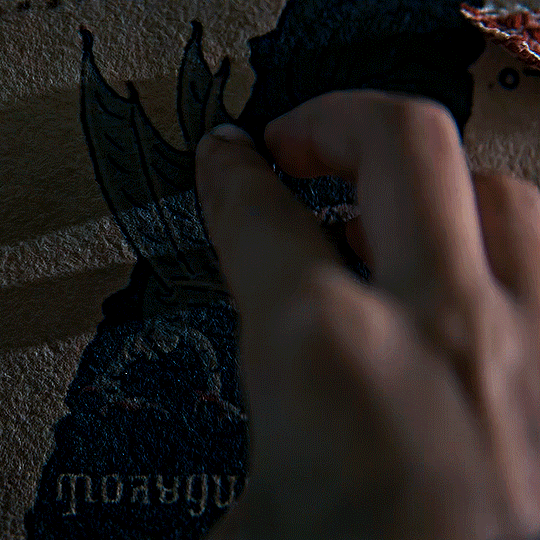
➳ P E R C E P T I V E
adj. | per· cep· tive | pər-ˈsep-tiv
1. Responsive to sensory stimuli; discerning, 2. Capable of or exhibiting keen perception; observant, 3. Characterized by sympathetic understanding or insight.
➳ P R O T E A N
adj. | pro· te· an | ˈprō-tē-ən
1. Of or resembling Proteus in having a varied nature or ability to assume different forms, 2. displaying great diversity or variety; versatile.

➳ B O L D
adj. | ˈbōld
1. Fearless before danger; intrepid, 2. Showing or requiring a fearless daring spirit, 3. Obsolete; assured, confident, 4. Adventurous, free.➳ R O G U E
n. | ˈrōg
1. Vagrant, tramp, 2. A dishonestor worthlessperson; scoundrel, 3. A mischievous, carefree person with little care for reputation; scamp.
-
PERSONALITY TYPE
"Life is either a daring adventure or nothing at all."
– Helen Keller


T H Ex E N T R E P R E N E U R
Extroverted· Observant· Thinking· Prospecting

Entrepreneurs always have an impact on their immediate surroundings – the best way to spot them at a gathering is to look for the whirling eddy of people flitting about them as they move from group to group. Laughing and entertaining with a blunt and earthy humor, Entrepreneur personalities love to be the center of attention. If an audience member is asked to come forwards, Entrepreneurs volunteer – or volunteer a shy friend. Theory, abstract concepts and plodding discussions about global issues and their implications do not keep Entrepreneurs interested for long. Entrepreneurs keep their conversation energetic, with a good dose of intelligence, but they like to talk about what is – or better yet, to just go out and do it. Entrepreneurs leap before they look, fixing their mistakes as they go, rather than sitting idle, preparing contingencies and escape clauses.
Entrepreneurs are the likeliest personality type to make a lifestyle of risky behaviour: They live in the moment and dive into the action – they are the eye of the storm. People with the Entrepreneur personality type enjoy drama, passion, and pleasure, not for emotional thrills, but because it is so stimulating to their logical minds. They are forced to make critical decisions based on factual, immediate reality in a process of rapid-fire rational stimulus response.
This makes school and other highly organised environments a challenge for Entrepreneurs. It certainly isn't because they are not smart, and they can do well, but the regimented, lecturing approach of formal education is just so far from the hands-on learning that Entrepreneurs enjoy. It takes a great deal of maturity to see this process as a necessary means to an end, something that creates more exciting opportunities. Also challenging is that to Entrepreneurs, it makes more sense to use their own moral compass than someone else's. Rules were made to be broken. This is a sentiment few instructors or superiors are likely to share, and can earn Entrepreneur personalities a certain reputation. But if they minimise the trouble-making, harness their energy, and focus through the tedious details, Entrepreneurs are a force to be reckoned with.
With perhaps the most perceptive, unfiltered view of any type, Entrepreneurs have a unique skill in noticing small changes. Whether a shift in facial expression, a new clothing style, or a broken habit, people with this personality type pick up on hidden thoughts and motives where most types would be lucky to pick up anything specific at all. Entrepreneurs use these observations immediately, calling out the change and asking questions, often with little regard for sensitivity. Entrepreneurs should remember that not everyone wants their secrets and decisions broadcast. If Entrepreneurs are not careful though, they may get too caught in the moment, take things too far, and run roughshod over more sensitive people, or forget to take care of their own health and safety.
Entrepreneurs are full of passion and energy, complemented by a rational, if sometimes distracted, mind. Inspiring, convincing and coluorful, they are natural group leaders, pulling everyone along the path less traveled, bringing life and excitement everywhere they go. Putting these qualities to a constructive and rewarding end is Entrepreneurs' true challenge.



-
STRENGTHS & WEAKNESSES
"The greatest trick of a rogue is not in the act of thievery,
but in convincing others that they are incapable of such a crime."
– Edgar Allan Poe



STRENGTHS
Rational and practical ➳ Entrepreneurs love knowledge and philosophy, but not for their own sake. What is fun for Entrepreneur personalities is finding ideas that are actionable and drilling into the details so they can put them to use. If a discussion is completely arbitrary, there are better uses for Entrepreneurs' time.
Original ➳ Combining their boldness and practicality, Entrepreneurs love to experiment with new ideas and solutions. They put things together in ways no one else would think to.
Perceptive ➳ This originality is helped by Entrepreneurs' ability to notice when things change – and when they need to change! Small shifts in habits and appearances stick out to Entrepreneurs, and they use these observations to help create connections with others.
Direct ➳ This perceptive skill is not used for mind games – Entrepreneurs prefer to communicate clearly, with direct and factual questions and answers. Things are what they are.
Sociable ➳ All these qualities pull together to make a natural group leader in Entrepreneurs. This is not something that they actively seek – people with this personality type just have a knack for making excellent use of social interactions and networking opportunities.
WEAKNESSES
Insensitive ➳ Feelings and emotions come second to facts and 'reality' for Entrepreneurs. Emotionally charged situations are awkward, uncomfortable affairs, and the Entrepreneurs' blunt honesty does not help here. These personalities often have a lot of trouble acknowledging and expressing their own feelings as well.
Impatient ➳ Entrepreneurs move at their own pace to keep themselves excited. Slowing down because someone else does not catch on or having to stay focused on a single detail for too long is extremely challenging for Entrepreneurs.
Risk-prone ➳ This impatience can lead Entrepreneurs to push into uncharted territory without thinking of the long-term consequences. Entrepreneur personalities sometimes intentionally combat boredom with extra risk.
Unstructured ➳ Entrepreneurs see an opportunity – to fix a problem, to advance, to have fun – and seize the moment, often ignoring rules and social expectations in the process. This may get things done, but it can create unexpected social fallout.
Defiant ➳ Entrepreneurs will not be boxed in. Repetition, hardline rules, sitting quietly while they are lectured at – this is not how Entrepreneurs live their lives. They are action-oriented and hands-on. Environments like uniform work settings can be so tedious that they are intolerable, requiring extraordinary effort from Entrepreneurs to stay focused long enough to get to freer positions.
-
ASTROLOGY

S A G I T T A R I U S
November 22nd – December 21st



Sagittarius is the ninth astrological sign, which is associated with the constellation of the same name. It lies between Scorpius and Ophiucus to the west and Capricornus to the east. In Greek mythology, Sagittarius represents a centaur, a half human, half horse creature with the torso of a man and the body and four legs of a horse. The centaur is depicted as aiming an arrow at the heart of the neighbouring constellation Scorpio, represented by the red supergigant star Antares. Sometimes the centaur is wrongly identified as the centaur Chiron, represented by the constellation Centaurus.
J U P I T E R

Jupiter is associated with the principles of growth, expansion, prosperity and good fortune. It is also associated with the urge for freedom and exploration.
Greek deity: Zeus.F I R E

Each sign is associated with one of four classical elements. The Sagittarius' element is Fire, associated with enthusiasm, a drive to express oneself and faith. Fire signs are also considered positive or extroverted masculine signs.A R C H E R

The archer represents the attempt to free oneself from man's animal nature. The centaur is thought to symbolize the development of the human soul. It represents the animal natures and desires of man, as well as its spiritual aspirations.
"You can't spell dysfunctional without fun, now can you?"
– Jennifer L. Armentout


Generous· Truth-seeker· Promises more than he can deliver· Idealistic· Energetic and enthusiastic· Very impatient· Great sense of humor· Will say anything no matter how undiplomatic· Optimistic in spite of terrible odds




The Sagittarius man is always searching for adventure. He is easily bored with the same old things. Ruled by a fire sign, he is a fierce archer, brimming with passion. Optimistic and strong, he is an advocate for his beliefs and he isn't afraid to stand up. This man will go to great lengths to achieve his goals. Only because he knows the true power of his own mind. Ruled by the powers of Jupiter, he is not to be underestimated or under-appreciated.
This is a man with a strong mind and an even stronger passion for life. He can be expansive and independent. His ruling signs, fire and air, influence him to be brave, and wildly adventurous. In love, the Sagittarius man is magnetic. He has a loyal heart, filled withtruthand knowledge. And that is only part of his magic. This man is an idealist. Unafraid. His charm is infectious. His mind, fierce and his heart, strong. He thrives. Dependable and hard-working. He dares to fight for those he loves. He is audacious, gutsy and valiant. A Sagittarius man who believe in you is not afraid to stand in the fire, together, or alone.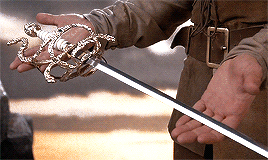



-
POWERS & ABILITIES
T R A C K E R
SUB HEADLINE

"And your scars? They are a testament of your fortitude. They are proof of what you survived. They are evidence of why you are here when so many twice your age wouldn't be. They're not ugly. Far from it. They're beautiful."
– Jennifer L. Armentrout


Adrian grew from a boy hardened by grief into a man sharpened by necessity. Years of surviving in Ravka's wild forests, fighting the injustices of corrupt nobles, and leading a band of outlaws shaped him into a figure both feared and admired. He is no Grisha, but his gifts lie in the skills of the flesh, the instinct, and the will – talents honed not by magic, but by hardship, hunger, and relentless practice.
|TRACKING|Adrian possesses an uncanny ability to read the land. He can follow faint tracks through snow, detect the broken rhythm of disturbed brush, or judge a stranger's passage by the silence of birds. His sharp memory for terrain makes him a natural guide in Ravka's mountains and forests. However, his talents are bound to the natural world; in cities or crowded markets, where stone swallows sound and scents are muddled, his tracking falters.
|WEAPON MASTER|Years of training turned necessity into mastery. Adrian's bow is his weapon of choice – quick, silent, and deadly at remarkable range. His short recurved bow, crafted from mountain wood and horn, allows for speed and precision even on horseback. At close quarters, he wields a curved sabre and a pair of hunting knives, each balanced for both combat and throwing. Though versatile, his style favors swiftness over brute strength; against heavily armoured foes, he relies more on agility than on force.
|ROGUE|Adrian thrives in the margins where law fails. He is quick-witted, silver-tongued, and dangerously charming, with a talent for slipping past guards as easily as he slips past suspicion. Though he plays the scoundrel, his charisma carries weight among his companions, binding them with loyalty not through fear, but through shared cause. He strikes at the wealthy and corrupt, redistributing spoils to the poor – a Ravkan echo of the old Suli tales, where justice comes not from kings, but from common hands. Yet, his reckless streak can sometimes lure him into greater risks than his men would choose on their own.
|LEADER OF OUTLAWS|Beneath his rogue's grin lies a strategist's mind. Adrian knows how to set ambushes with precision, how to inspire hope where there is none, and how to balance mercy with discipline. His bandits follow him not only for his skill with steel, but for his vision of justice. Still, his leadership is not without strain; the burden of responsibility weighs heavy, and his personal quest for vengeance can cloud judgment, risking the lives of those who believe in him.
|SURVIVOR'S ENGINUITY|Born into poverty, Adrian learned early to mend what was broken and make use of what others discarded. He can fashion snares from rope, fletch arrows from scraps, and keep a camp alive with almost nothing. This ingenuity makes him adaptable in hostile environments. However, while his survival skills keep him alive in the wilds, they cannot shield him from the subtleties of court life, where deception takes different forms and the traps are woven in words rather than snares.


-
SIGNATURE



[img][/img]
